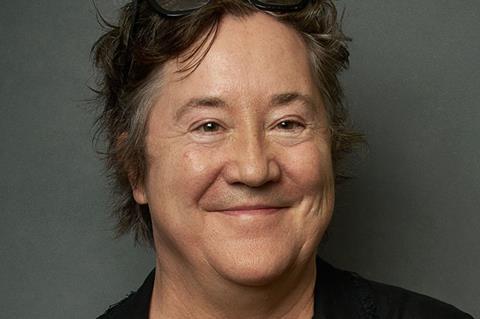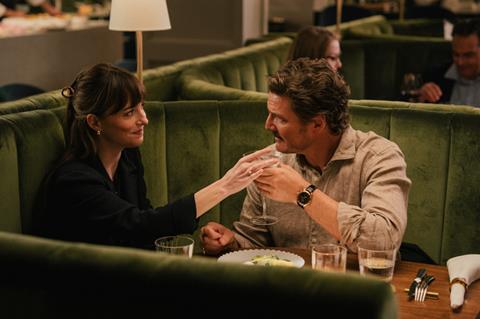
US producer Christine Vachon spoke positively at the Galway Film Fleadh today (July 10) about working with emerging talent, who she credits with being “what keeps our lifeblood going,” noting, “It’s a hard business not to be cynical in.”
“When you work with a new filmmaker, they’re usually telling a story they waited their whole life to tell,” reflects Vachon, whose most recent film is Celine Song’s Materialists.
“That brings an energy, and it also prevents cynicism. I really do believe cynicism is the thing that can destroy so many creative careers. It’s a hard business not to be cynical in – it really is. It’s filled with a lot of people who get rewarded for terrible behaviour. When you look the industry in the face every single day, it’s hard not to feel that kind of cynicism just to survive.”
Vachon, through her New York-based outfit Killer Films which she has run for 30 years with Pamela Koffler, enjoyed box office and critical success with Celine Song’s debut, Past Lives, which took more than $40m worldwide after its summer 2023 release, with A24 handling North America, and Studiocanal in UK-Ireland.
Vachon pointed towards the special ingredient of Past Lives which she believes made it a perfect film for theatrical release. “Everybody thinks it’s about them. I had the pleasure of introducing Celine to Steven Spielberg at the Academy lunch you get to go to when you’ve been nominated… He said, ‘That movie is about me and my wife.’ Everybody can see a version of their life in it.”

Vachon observed Song’s follow-up, love triangle romantic comedy Materialists, starring Dakota Johnson, Pedro Pascal and Chris Evans, has done “astonishingly well” at the North American box office via A24. It has grossed $33.5m to date (as of July 6) with a UK-Ireland release date set for August 15. Sony is handling the global roll-out.
She said the producers carefully evalutated the film’s realistic market value. “One of the hardest things in independent film producing is, how do you assign value?… It comes down to, I’m making a movie, I don’t just grab a number of the air and say, ‘We need $10m to make this.’ It comes from thinking of all the different pieces that help me decide the value, perceived or otherwise.”
AI in indie filmmaking
On the subject of how she is engaging with AI, Vachon said: “That genie’s out of the bottle. You can stomp around the same way everybody did when we went from film to digital. My attitude then was how can we use this to make what we do better.
“In some ways, indie film has been using forms of AI for a long time. In Carol, to make Cincinnati look like 1930s New York. In Wonderstruck, to help make our crowds look bigger. Those are things we do on limited budgets all the time because it’s cheaper than having to build a gigantic set or have thousands of extras we can’t afford.
“I’ve put a script through AI to get a synopsis. Have I put a script through to get AI’s opinion? Yes, for fun, to see what it says, but that’s not very valuable to me. We have to figure out ways to make it work for us as a tool.”
Vachon reflected on the early days of her career. She is regarded as a champion of queer cinema, with a long-standing partnership with director Todd Haynes, starting in 1991 with Poison.
“I have always just wanted to make movies that excite me, provoke me,” Vachon explained. “When I made Poison, I discovered something that was extraordinarily empowering. Because it was considered at the time as ‘new queer cinema’, I discovered that if you made a movie that had queer content, and queer audiences at that time were so underserved, people flocked to it because they were so desperate to see themselves represented on screen.
“I discovered if you made a film for an underserved audience, and you made it just for them, you could recoup and make your money back. That turned out to be something that really drove the first few movies I made. I’m not the first person to have discovered that. While I was discovering that, Spike Lee was discovering that.”

























No comments yet